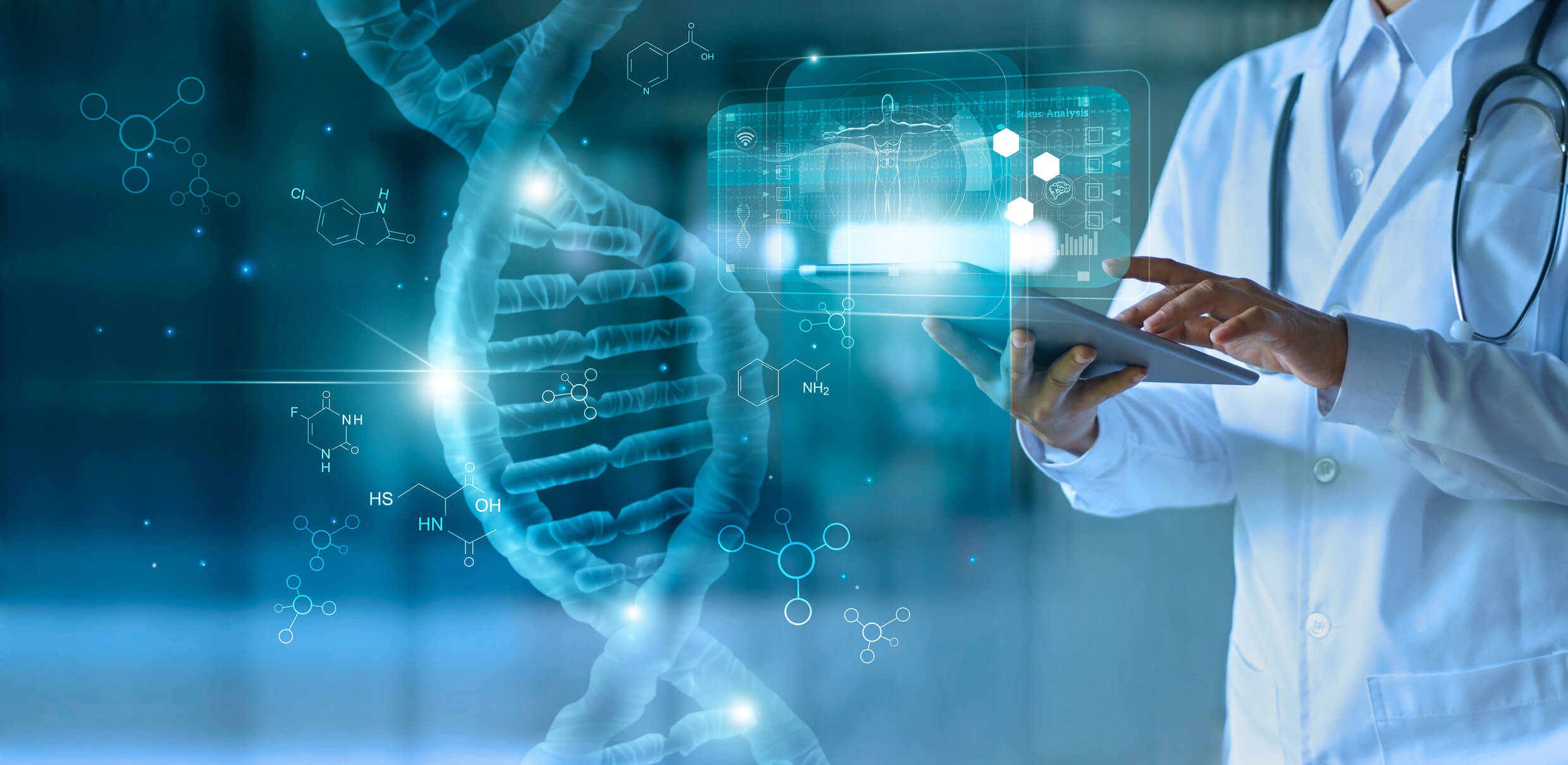Biochemistry
Overall Course Objectives
To render the student theoretically capable of the most important areas in biochemistry. To enable the student to solve general and biotechnological problems.
Learning Objectives
- Describe the structures of amino acids and describe the chemical and physical chemical principles for stabilising the secondary, tertiary and quaternary structures of proteins.
- Explain the protein chemical descriptions of substrate binding, catalysis & regulation (activation & inhibition) by use of the concepts of specificity, affinity, induced fit, allosteric enzymes, cooperativity, covalent modification and reversibility.
- Explain the most important enzyme kinetics models and the background for enzyme kinetics analyses.
- Perform calculations of Km, Vmax, kcat and Ki from enzyme kinetics data.
- Describe the principles of the methods for protein purification, determination of protein structure, amino acid analysis and characterisation of proteins chemical and physico-chemical properties (inclusive immunoassay techniques).
- Describe the structure of carbohydrates and lipids and explain their function in cell membrane and cell walls.
- Describe how anabolic and catabolic pathways in the central metabolism results in use of chemically bound energy and synthesis of monomers of macromolecules.
- Explain type of enzyme, coenzyme, substrate and product for the individual reactions in glycolysis, gluconeogenesis and citric acid cycle, respectively, and the regulation of the reactions.
- In the respiratory chain, explain the transport of electrons from NADH to oxygen, as well as the synthesis and utilization of proton gradient across the cell membrane (uninhibited, inhibited and uncoupled).
- Describe how the Calvin Cycle and the Pentose Phosphate pathway contribute to cell metabolism and are useful targets for bioengineering.
- Describe how changes in central metabolism can be used in biotechnological production, and how these interact with the external environment.
Course Content
The biochemistry course contains the following elements that are covered in the lectures.
Macromolecular organization of the cell: Construction of proteins, polysaccharides and lipids. The spatial structures and functions of macromolecules, including the reactive centers of enzymes, coenzymes and catalytic mechanisms, enzyme kinetics and overall regulation are involved.
Cell metabolism: Degradation of carbohydrates and energy metabolism by electron transport and phosphorylation. Regulation of metabolic networks, as well as conversion of carbohydrates into metabolic networks.
Biotechnological possibilities based on biochemical issues.
Teaching Method
Lectures, group exercises
Faculty
Remarks
Taught in English only.



